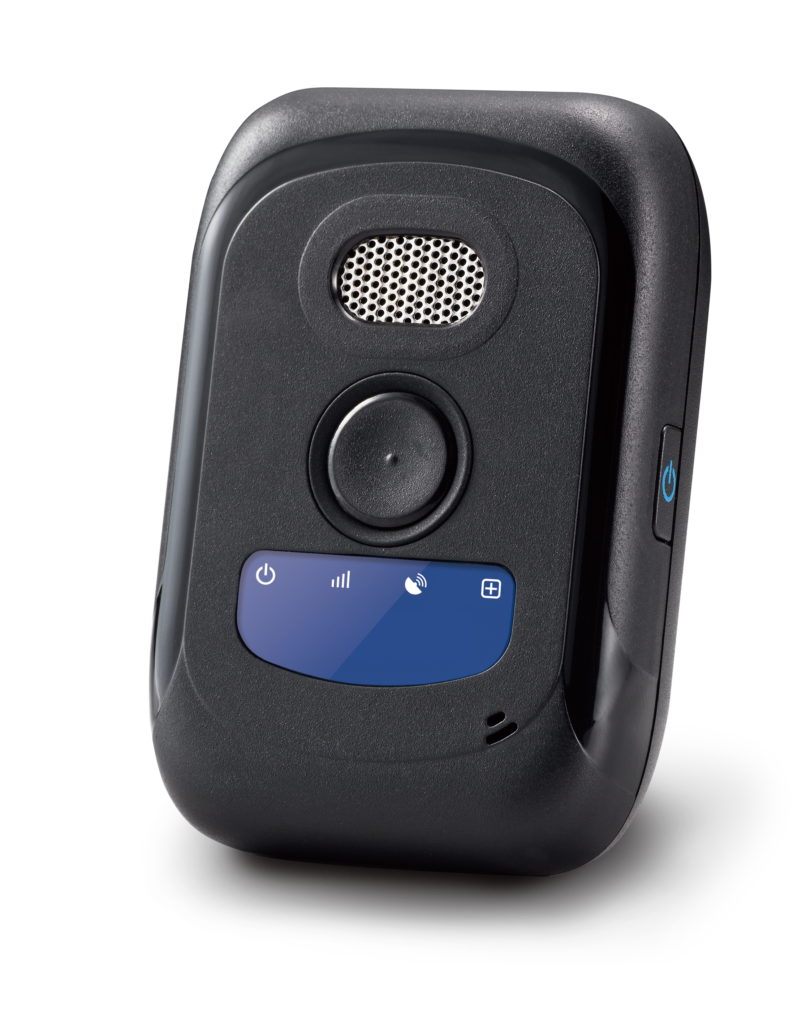While being a real estate agent might seem like a safe job, that isn’t always the case. According to a NAR survey, 40% of real estate agents said they felt unsafe every few months or more often, and only 5% said they NEVER felt unsafe while doing their job. From working alone to meeting with strangers in a new environment, and even inviting in anyone that sees an open house sign. Real estate agents are put at risk every day of potential attacks. But real estate agents don’t have to feel unsafe on the job, carry large protective gear that can make their clients uncomfortable, or rely solely on their cell phones.
Depending on where the homes they are showing are, or what scenario they might find themselves in, real estate agents may not always have the ability to call 911 in an emergency. Or if they fall or a strike by an object, real estate agents may be unconscious. These scenarios make it impossible for them to use a cell phone and reach for help.
According to the Pew Research Center, approximately 95 percent of Americans now own a cell phone of some type, and more than one-third own a smartphone. Although these devices may provide many conveniences to users, in emergency situations their use is limited. Cellular devices require the user to still be conscious, or within range of the phone to call for help, making the device unreliable for real estate agents and not the most plausible option for ensuring they stay safe.
But there’s a better solution to providing emergency communication for real estate agents that can be easily carried or worn. The specific devices we are talking about is mPERS devices, which can automatically report an incident to emergency services so real estate agents can receive help as soon as possible. mPERS devices, which have been used by seniors for years, are essentially a help button that can be pressed to alert emergency services that real estate agents need help. In recent years, these devices have become even more beneficial outside of the senior space because they no longer require a base station device to place calls, which limited their range of use.
mPERS devices are small, portable, and lightweight. They use up-to-date location technology, and some even offer built-in fall advisory capabilities. These devices can detect horizontal and vertical movement and can initiate a call for help to emergency services without the need to even press a button. This is perfect in situations where real estate agents may be unresponsive because of an accident or medical emergency, eliminating the need to call for help themselves entirely. The cloud-based technologies found in mPERS devices make it possible for Central Stations to pick up and respond to the need for help as soon as possible. If a real estate agent falls on the job, the device can report it via a text message or red flag in a software system.
The devices can also last much longer on one charge than a normal cell phone, making this another benefit of an mPERS device being used by real estate agents who are always busy. By having fewer functions, no screen, apps, or texting ability to drain battery, you aren’t constantly on them doing something. They can be turned off, but many also come with a “sleep” mode, where once the SOS button is pressed, the exact location information of the real estate agent is sent to a central reporting station where an emergency call can be placed. There are mPERS devices on the market that can last up to 30 days on a single charge.
The use of mPERS devices can also make it easier to keep track of the number of incidences that occur, where they occur, and the type of accident that occurs. This is valuable information that can help real estate agents know what areas they should be avoiding, or what areas they need to be more aware of to avoid repeat incidents.
But not just any mPERS device can satisfy all the needs of real estate agents that will be utilizing this device. Several things should be considered before selecting a device. One of the most important considerations is looking into mPERS devices that are capable of 5G technology. By the end of 2022, all major cell phone networks will fully transition to 5G technology, making out-of-date devices that can only handle 3G or 4G useless. Another consideration is the ability to upgrade an mPERS device down the line if it becomes necessary with new data networks and technologies evolving every day.
Whether it’s a pendant, clipped to the pocket or belt, etc. picking a wearable device (mPERS device) that makes the most sense for real estate agents’ specific needs is an important part of taking advantage of all of the safety benefits that can potentially help save lives and improve the health of real estate agents.
Matthew Martinez Opens Up About AI and the Future of Luxury Real Estate(Opens in a new browser tab)
Carrying cans of pepper spray or other protective equipment can still provide extra layers of protection for real estate agents. They may give real estate agents more confidence heading out on their own, but they can’t help real estate agents get in touch with emergency services. mPERS devices are another great addition to any real estate agent’s gear that doesn’t take up space, is easy to use, and can even work on its own without a user doing anything. Real estate agents should seriously consider and look into employing these devices as a standard across their practice. Instead of feeling alone or calling out for help, a real estate agent can receive the connection to emergency services within seconds and in turn, prevent a bad situation from becoming worse with just the push of a button.
By: Chris Holbert, CEO of SecuraTrac
